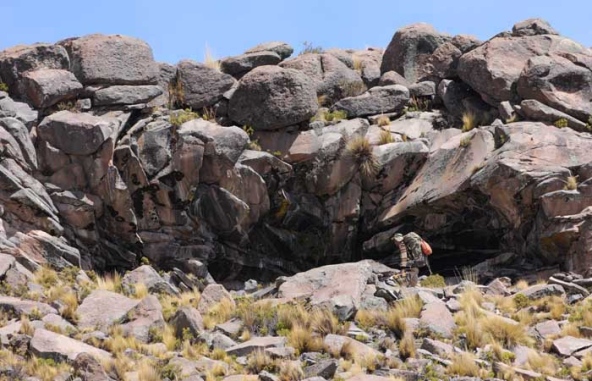Saturday, October 4, 2014
Remote Sites Yield Evidence of Early South Americans
New research is focusing on hunter gatherers who colonized South
America at the close of the last Ice Age. Kurt Rademaker of the
University of Maine has found a rock shelter high in the Andes that was
inhabited 12,400 years ago. “The [Pucuncho Basin] has fresh water,
camelids, stone for toolmaking, combustible fuel for fires and rock
shelters for living in,” he told Nature News.
“Basically, everything you need to live is here. This is one of the
richest basins I’ve seen, and it probably was then too.” And scientists
are carefully examining the stone tools from South America’s
Paleo-Indian sites because many of them are made from stone not
available in the area where they were found. “What we’re seeing is that
12,000 years ago or more, these groups already had networks, knew the
landscape and moved between the coast and the interior,” said César
Méndez of the University of Chile. To ready more about the earliest
sites in the New World, see ARCHAEOLOGY's "America, In the Beginning."


No comments:
Post a Comment